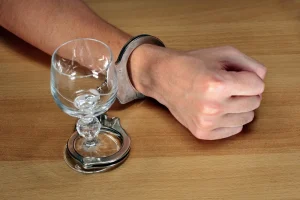
If certain friends often encourage activities you regret or leave to avoid peer pressure feeling ashamed, limit time with them. Politely decline invitations that involve the temptation to cross your boundaries. Handling guilt takes practice, but it is worthwhile to listen to your intuition. Turn to parents or guardians for backup while dealing with peer pressure situations that feel beyond your coping skills.
Reevaluating Your Friendships
Understanding your boundaries in relation to the situation at hand can be helpful. This will help to guide you in making a logical and informed decision when faced with peer pressure. Spoken peer pressure occurs when an individual is asked or convinced by others to engage in a certain behaviour. Often, the greater the number of people trying to persuade the individual, the greater the pressure.
There are lots of situations where you might feel pressured to join in, even when you don’t want to

If they pressure you to do shots with them at the bar when you aren’t drinking, for example, you might suggest that you both hit the dance floor instead. Or maybe, you make a plan to go on a hike or to the movies the next time you hang out. That way, you’re fulfilling both of your needs in a mutually beneficial way. Saying “no” can be hard, but it’s necessary to set healthy boundaries in relationships. If someone persistently pressures you to do something, you can try telling them how it affects you. Dealing with peer pressure can be difficult, but below are some ways to help address it.
Teens and Alcohol
When I was at school, I struggled to shake the overwhelming feeling that I was somehow lagging behind everyone else. I liked my friends and I enjoyed socialising, but I often felt like I was still missing out. I was convinced that my peers had bigger friendship circles, went out more, partied harder, stayed up later, dressed cooler, drank more, had more partners – you get the picture. I remember being so wrapped up in the idea that I was somehow falling short because I was not exactly like them.
- Unspoken peer pressure occurs when an individual observes certain behaviours of others and perceives a need to follow suit to fit in or be accepted.
- Positive pressure empowers choice; negative pressure limits it.
- It sounds like someone telling you to stop worrying, start having fun, and be part of the group by participating in something you don’t feel comfortable with.
- It may not be easy for your child to confide in you about the issues they are faced with.
Ways to Resist & Handle Peer Pressure
It’s similar with sex and “hooking up”—most students have a skewed idea of what others are doing. Knowing the facts can help you to resist pressures based on the idea that “everyone is doing it” and that you must party to fit in. Many adults are susceptible to drinking too much because their friends are doing it, or putting work before family because they’re competing with other people in their office for a promotion. Peer pressure may just be a gentle encouragement to have one more, or the feeling that you should say yes to a drink to be polite or join in.
- Start asking yourself reflective questions without judgment to understand what happened.
- For example, when you come across a relevant news article related to peer pressure, or when instances of it are depicted on social media.
- It can be easy to get lost in a world where we are trying to keep up with everyone around us – take it from someone who knows.
Once a child begins seeing themselves as a part of a community, the desire to fit in may occur for better or worse. This is why it is important to talk to your child early on about peer pressure and how to avoid being led into negative behaviors by their peers. Peer pressure can be challenging to resist, but there are effective methods and techniques how to deal with peer pressure you can use to stand firm in your values and choices while dealing with peer pressure. Everyone should have specific peer pressure strategies in their back pocket that will help them respond to subtle nudging from peers towards risky activities. Ultimately, how to tackle peer pressure uplifts or undermines the intentions and methods.

How do I talk to my child about peer pressure?
An outside adult perspective can help decode complex social dynamics you feel confused or hurt by. Although parents worry about the influence of peers, overall, parents also can have a strong influence on whether children succumb to negative peer pressure. Peer pressure is often seen as a rite of passage, a normal part of growing up and finding one’s place in the world. However, the reality is that the effects of peer pressure on mental health can be profound and long-lasting.
Lean on people for support, like your friends, family, or a therapist. As your child goes through elementary school, talk with them about smoking, drugs, and alcohol. Peers can pressure kids to sneak out of the house, cut school, drive without a license (or ride with an underage driver), steal, vandalize property, and cheat.

In some cases, people may continue using the substance as part of social activity, such as drinking at parties or smoking because everyone else is taking a smoke break. Most people think peer pressure is a bad thing (involving stealing, smoking, taking drugs, drinking alcohol). It can be just the push your child needs to join a new club at school, try a new sport, study for better grades, or attend college. As a parent, you can help your child deal with peer pressure and make good choices at every age and stage. When someone does things that are out of character for them, it could be a result of peer pressure. Individuals may sometimes feel pressured into doing something that is not in line with their values and morals in order to gain the acceptance of their peers.

